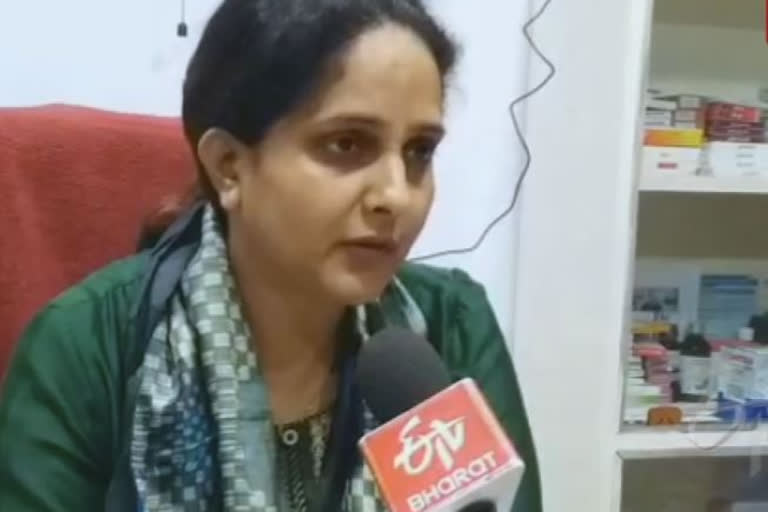High amounts of Arsenic in breast milk of mothers detected in Bihar: Report
According to WHO, the optimum amount of arsenic in a mother's breastmilk should be between 0.2 to 0.6 micrograms per liter for it to be potable and safe for the child. But in this case, the feeding mothers in Buxar have about 495.2 micrograms of arsenic per liter, which is hundreds of times more than the acceptable amount.

Patna: A large amount of arsenic has been detected in the breast milk of women residing along the banks of the river Ganga, as revealed by a recent research conducted by the Mahavir Cancer Research Institute in Patna. Professor Ashok Kumar Ghosh, the in-charge of the Research Department of the Mahaveer Cancer Institute, confirmed the detection in the study carried out across the feeding mothers residing in Buxar, Bhojpur, Saran, Vaishali, Patna and Bhagalpur districts in Bihar.
Giving further insights on the results of the research, he said that the breast milk of women from the Buxar district is the least potable with an arsenic content of 495.2 micrograms per liter. "So far there is no medicine for the treatment of arsenic anywhere in the world, though we are trying our best to come up with a plausible solution. Executing this study was a very challenging task, especially while collecting the sample of mothers' milk in rural areas. But we are glad that we conducted it, since the results would now help retain the well-being of the children in the area, hopefully through some precautionary measures," he said.
To get the samples, the researchers had to form a sperate team of female researchers who persuaded the breastfeeding women in the area to give a sample of their milk. The age range of the samples that we collected was between 20 years to 40 years, while the research was carried out under the instructions of the Indian Council of Medical Research.
According to WHO, the optimum amount of arsenic in a mother's breastmilk should be between 0.2 to 0.6 micrograms per liter for it to be potable and safe for the child. But in this case, the feeding mothers in Buxar have about 495.2 micrograms of arsenic per liter, which is hundreds of times more than the acceptable amount. In a conversation with ETV Bharat, PMCH's eminent gynecologist Dr. Priyanka Shahi expressed serious concerns over this report.
"Mother's milk is the best for babies until they are 6 months old. In fact, it is necessary for a baby's proper growth because of the essential contents present in it. The amount of arsenic that has come forward is actually a matter of concern since it would neither be potable nor safe for the children," she said. "If the amount of arsenic in the body increases, the risk of serious diseases like cancer and malnutrition also shoots up. Additionally, the body becomes more prone to diseases related to liver, gallbladder, kidney, heart and skin," she said. As a precautionary measure, she said it is necessary for the breast feeding women to not consume water directly without getting it purified.
"I would advise all the young mothers or to be mothers to use RO water treatment and drink the safe, purified water. Those who are not able to do this, should boil the water well and filter it with a clean cloth before consumption," Dr. Priyanka said. She further clarified that she wants more research to be done in this regard now, and expects the government authorities to take a serious note of it. "In areas with a considerably high amount of arsenic in ground water, the government should set up arsenic treatment plants. They should also start focusing on the ways to reduce the amount of arsenic," she added.
Also read: Bihar: Doctors remove over 60% liver of elderly woman suffering from cancer






